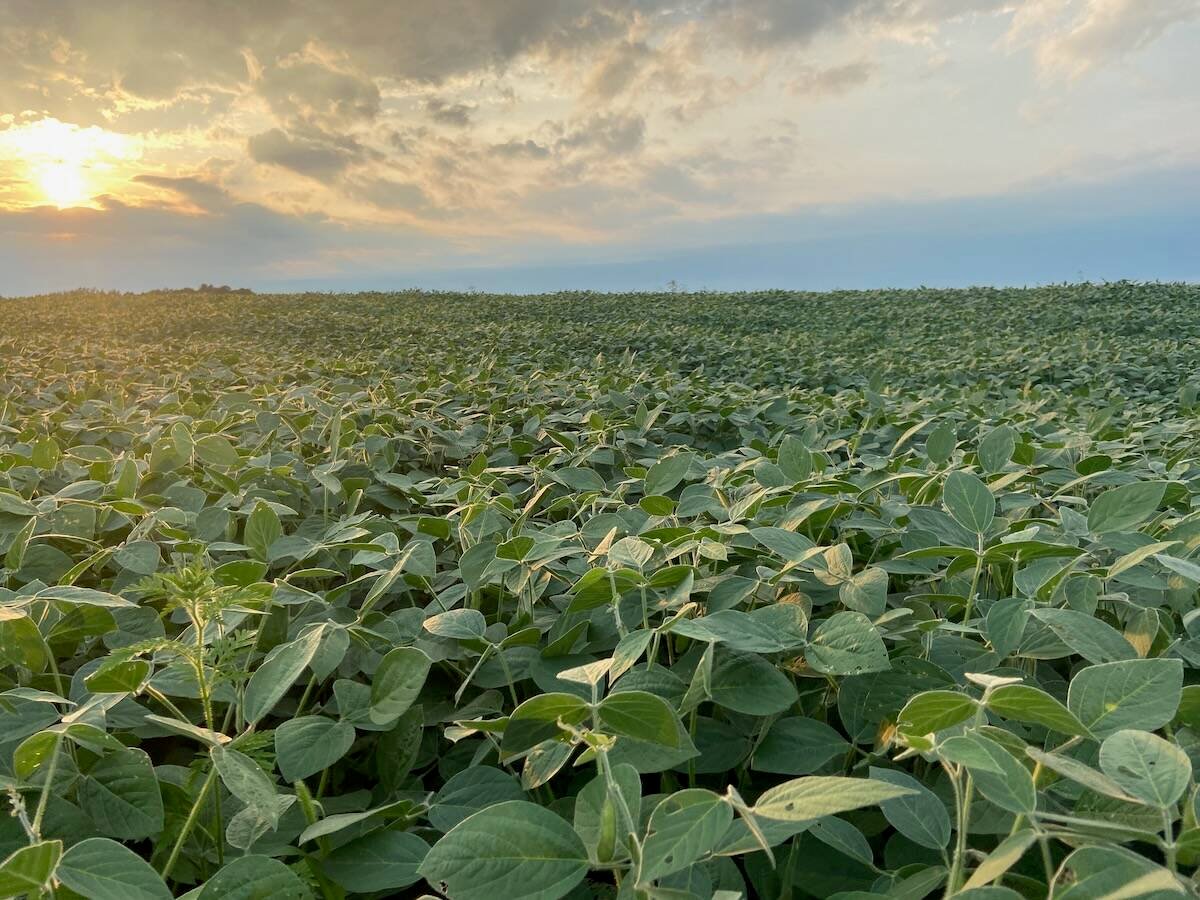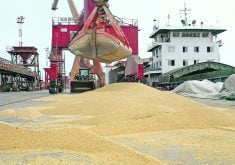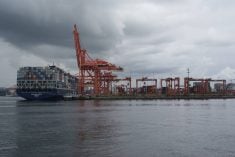Glacier FarmMedia – Despite record yields, improved trade access and enhanced competitiveness in domestic transportation services, 2024 and early 2025 will be remembered as chaotic for Canada’s soybean industry.
Brian Innes, Soy Canada’s executive director, opened the organization’s recent annual meeting by describing the current international trade environment as unprecedented, unpredictable and volatile.
However, he shared some good news for the future.
Read Also

Flax sector sees omega-3 opportunity
SASKATOON — A global shortage of omega-3 oils could be an opportunity for the flax sector, says an industry official….
At the meeting, Innes outlined an in-depth review of the current state of Canada’s soy industry and its position in the global market, along with his predictions for the future.
He said what stood out amid the chaos is Canada’s reputation as a trusted and reliable supplier of soybeans, attracting the attention of existing and potential trade partners from around the world.
“Our role as a national organization in this seeming chaos — bringing our value chain together to be effective when engaging with governments in our export markets and meeting market requirements — can pay dividends,” said Innes, reminding meeting attendees that 70 per cent of Canadian soybean production is exported every year, and that soybeans rank in the country’s top three most valuable crops.
During the meeting, Innes presented solutions that could position Canadian soybeans for success on the international stage and at home. He pointed to the success of the Sustainable Canadian Soy program as a tool that is already increasing demand from global buyers who are eager to source verifiable Canadian-grown soybeans.
Now in its second year, the Sustainable Canadian Soy program includes six exporters. Innes believes this program can be leveraged as a tool that’s made the production and export of verified soybeans easier for farmers and exporters to provide global customers with what they want.
“As the program continues to grow — in the number of participating exporters, volume of soybeans produced and demand for verified soybeans — so will the opportunities across the entire Canadian value chain,” Innes said.
When it came to addressing global volatility and its direct impact on the industry, including the instability of markets, transportation networks and trade policy, Innes said he feels certain that “we are in a good position to step carefully and purposefully forward as a country and an organization.”
Looking ahead, Innes said Soy Canada will continue working to ensure Canada is a supplier of choice for international customers and their governments. He believes that by highlighting the stability of Canada’s soy industry, the country can — and is already beginning to — serve as a beacon of reliability in an otherwise uncertain world.
“I’m optimistic we can seize opportunities that we’ve already fostered with global customers who are looking for stability and predictability. Canada can be the supplier that is trusted and reliable — and not everyone can say this,” he said.
Soy Canada’s market development mission is an example of how the industry was able to connect with customers, foster business and work together to demonstrate the value of Canadian soy and the benefits of doing business with Canada. Innes said the latest mission, hosted in February 2025, was a success with the strongest level of engagement from Canadian farmers and exporters that reached more end users than ever before. “
The success of engaging with more than 220 customers in Japan and Indonesia as part of our trade mission says we’re on the right track to become the soybean supplier of choice,” he said.
Remaining optimistic in the face of uncertainty is important, but change is inevitable, and Innes said Soy Canada must continue strengthening and building upon its core pillars of leadership, research, market development and access, trade policy and research.
He said the organization is positioned to adapt to change while keeping the foundation that created Canada’s reputation for world class soybean varieties during this time of vibrant change.
During the meeting, Jeff Barlow of Grain Farmers of Ontario replaced Jason McNaughton, who represent food grade exporters on Soy Canada’s board, as the new chair.















